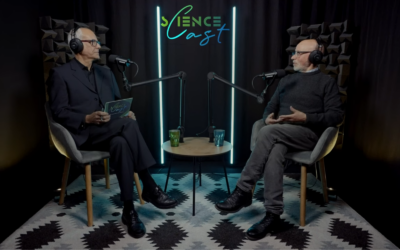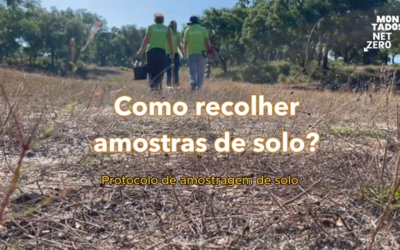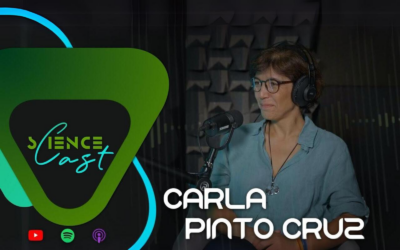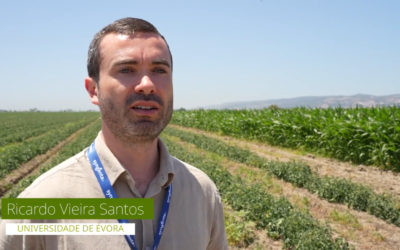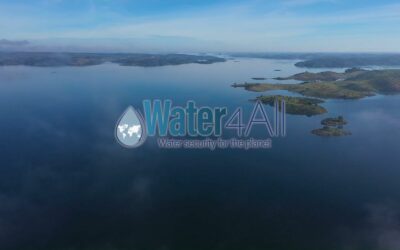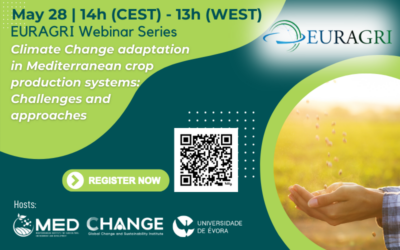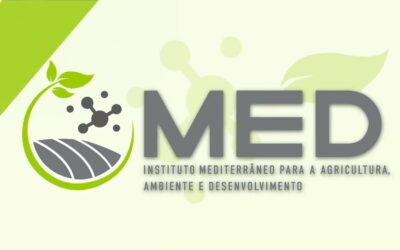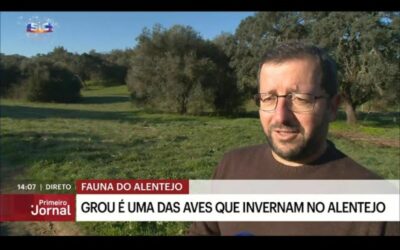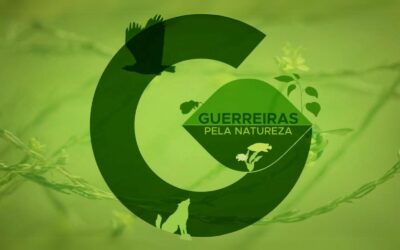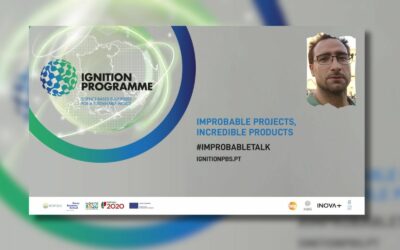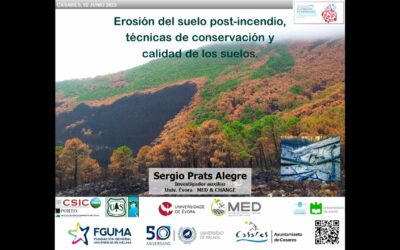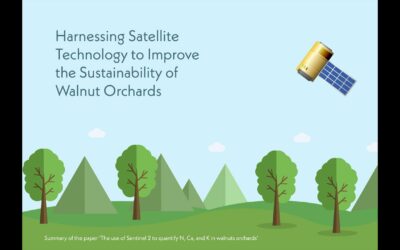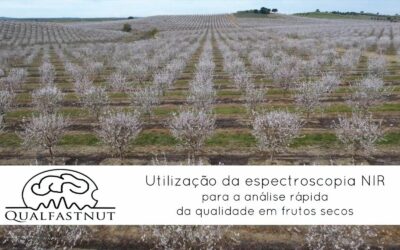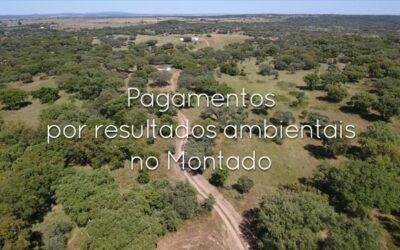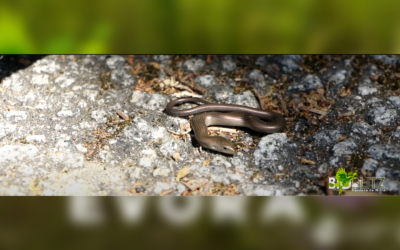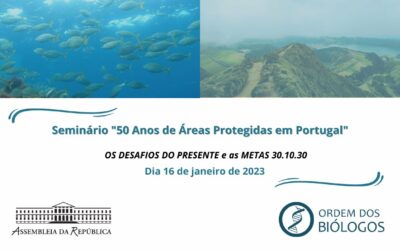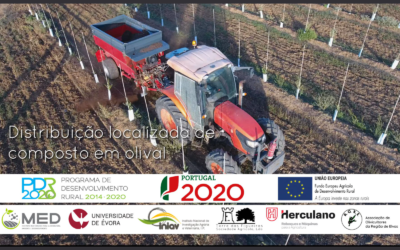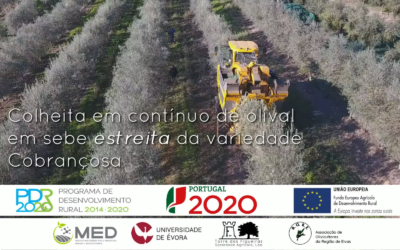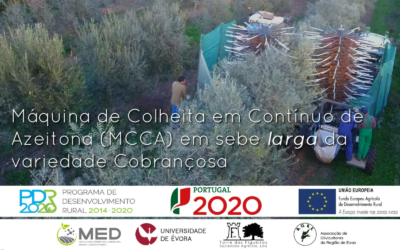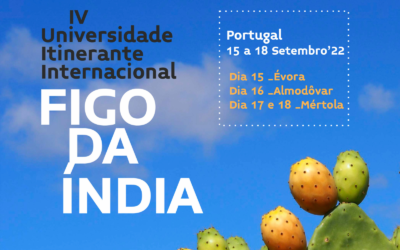PROPAGAÇÃO IN VITRO DE PLANTAS BY PROF. AUGUSTO PEIXE (JAN. 2018)
Prevendo-se para as próximas 3-4 décadas a necessidade de aumentar a capacidade produtiva agrícola em mais de 50%, de modo a fazer face às necessidades crescentes de alimentos, é fundamental poder contar-se com materiais de propagação de qualidade e em quantidade. Para as plantas em que a propagação por semente não é uma alternativa, a cultura in vitro de tecidos vegetais apresenta-se no momento como a solução mais eficiente para conseguir a sua propagação vegetativa. A técnica permite produzir, independentemente das condições ambientais, grandes quantidades de plantas totalmente isentas de agentes patogénicos endógenos, e, por isso mesmo, constitui-se já hoje uma mais-valia ao nível da atividade produtiva nos viveiros de plantas em todo o mundo.
MED VIDEOS
ScienceCast – Uma conversa com Ciência com António Mira
António Mira, investigador do MED e professor no Departamento de Biologia da Universidade de Évora, foi convidado do podcast "ScienceCast - Uma conversa com Ciência" onde falou sobre a investigação que tem desenvolvido nas áreas da Ecologia Aplicada, Agroecologia e...
Como fazer a amostragem de solo no Montado – Montados Net-Zero
A análise de solos no montado pode auxiliar na gestão ao indicar o pH, os níveis de fertilidade, a composição mineral, o equilíbrio de nutrientes e a concentração de carbono nas diferentes parcelas da exploração. Os resultados obtidos na amostragem permitem melhorar...
Carla Pinto Cruz on Science Cast
Carla Pinto Cruz, a MED researcher and professor in the Biology Department of the University of Évora, spoke to Mónica Ribau on Science Cast, a podcast about science. Carla Pinto Cruz studies temporary ponds in the Mediterranean, where plants adapt to living with...
TomAC project field day
At a field day on 18 July 2024, the TomAC R&D consortium presented the results of a trial in the Lezíria Grande of Vila Franca de Xira, which prove that tomato cultivation is more profitable in Conservation Agriculture production systems. The TomAC consortium is...
Water4All project meets in Évora
At the end of February, the University of Évora hosted the first stakeholder consultation meeting for the creation of the Alentejo Living Water Laboratory, as part of the Water4All project. Ana Mendes, MED researcher, is coordinating the University of Évora's team on...
NemaLab researchers in the S3E START programme
For five months, researchers Cláudia Vicente, Margarida Espada, Pedro Barbosa and Madalena Mendonça from MED-UÉvora's Nematology Laboratory (NemaLab) took part in the S3E START programme, a training and mentoring programme in the area of deep tech aimed at research...
Fosamed Master’s promotional video
Fosamed is an Erasmus+ capacity building project funded by the European Commission. The main objective of the project is to implement a new joint Master's programme in food safety in Morocco. Watch the video to learn more about this project, coordinated by Marta...
EURAGRI Webinar MED – Climate Change adaptation in Mediterranean crop production systems
MED hosted the first webinar of the EURAGRI Webinar Series 2 within the scope of ‘Climate Change adaptation in Mediterranean crop production systems. Challenges and Approaches’. In this webinar, we had valuable contributions from experts in the field: Gottlieb Basch...
MED – Mediterranean Institute for Agriculture, Environment and Development, University of Évora. Short Version EN
MED VIDEOS
MED – Mediterranean Institute for Agriculture, Environment and Development, University of Évora. Long Version EN
MED VIDEOS
MED researcher takes part in SIC news report ‘Fauna do Alentejo’
Carlos Godinho, investigador do MED, participou em reportagem sobre a Fauna do Alentejo in SIC a 07-01-2024.MED VIDEOS
Investigadora do MED participa no documentário Guerreiras pela Natureza – RTP1
A série documental "Guerreiras pela Natureza" estreou no dia 18 de setembro na RTP1. A série retrata histórias de mulheres que têm uma carreira de excelência dedicada à Conservação da Natureza. A estreia contou com a história de Carla Pinto Cruz, investigadora do MED....
Bruno Medronho, MED-UAlg researcher, was a guest at the Ignition Program where he spoke about methodologies for the valorization of agroforestry waste
Bruno Medronho, MED-UAlg researcher, was invited by Porto Business School to take part in the "Improbable talks" initiative as part of the Ignition Programme. This multidisciplinary programme is directly linked to R&D activities and its mission is to prepare...
Post-fire soil erosion, conservation techniques and soil quality by Sergio Prats
MED Researcher Sergio Prats was a guest speaker at the VI FGUMA Heritage Days in Casares: "Mediterranean hill management in the current context: a paradigm shift" Casares (Málaga), 2-4 June 2023. The lecture he presented ("Post-incendio soil erosion, conservation...
Harnessing Satellite Technology to Improve the Sustainability of Walnut Orchards
Walnuts are one of the most nutritionally dense foods on the planet, and could play a large role in achieving global food security. However, in non-organic walnut orchards, chemical fertilisers are typically applied to boost nut yields. When excessive amounts of these...
QUALFASTNUT – Utilização da espectroscopia NIR para a análise rápida da qualidade em frutos secos
Com a crescente aposta na fileira dos frutos secos em Portugal, torna-se crucial o acompanhamento da qualidade destas culturas, nas diferentes fases da produção. O projeto QUALFASTNUT coordenado pela Universidade de Évora, e que integra investigadores do MED,...
Medida agro-ambiental “Gestão do Montado por Resultados” novo PEPAC
O MED é o responsável técnico-científico pela nova medida agro-ambiental “Gestão do Montado por Resultados” contemplada no PEPAC. Esta é uma medida piloto que visa a regeneração do Montado e que se aplica às áreas de Montado nos concelhos contíguos de Montemor-o-Novo,...
BIOBLITZ Herdade da Mitra | Tutorial aplicação iNaturalist
Nos dias 5 e 6 de maio, todos os caminhos vão dar ao Pólo da Mitra, na Universidade de Évora. Nestes dias os investigadores do grupo de Ecologia Aplicada e Conservação do MED, em parceria com a Noite Europeia dos Investigadores (NEI) promovem o primeiro Bioblitz da...
Seminário “50 Anos de Áreas Protegidas em Portugal”
Gravação do Seminário “50 Anos de Áreas Protegidas em Portugal – Os Desafios do Presente e as Metas 30-10-30” promovido pela ordem dos Biólogos, que decorreu no dia 16 de janeiro de 2023 no Auditório António de Almeida Santos, na Assembleia da República. Com a...
Discover the REGACORK TraDE Project
The RegaCork TraDE aims to raise awareness of the intensive production of cork oaks using irrigation, a forestry management concept recently developed by the University of Évora. It fits into the typology “Actions for the dissemination and diffusion of new knowledge...
REGACORK TraDE: Knowledge Transfer in Irrigation of Cork Oaks
The RegaCork TraDE aims to raise awareness of the intensive production of cork oaks using irrigation, a forestry management concept recently developed by the University of Évora. It fits into the typology "Actions for the dissemination and diffusion of new knowledge...
REGACORK TraDE – Transferência de Conhecimentos em Rega de Sobreiros
O RegaCork TraDE pretende dar a conhecer a produção intensiva de sobreiros com recurso a rega, conceito de gestão silvícola recentemente desenvolvido pela Universidade de Évora. Enquadra-se na tipologia "Ações de disseminação e de difusão de novos conhecimentos e...
TECOLIVE | Distribuição localizada de composto em olival
Distribuição localizada de composto em olival no âmbito do Projecto TECOLIVE - “Técnicas e Tecnologias para Valorização de Sub-produtos em Olivicultura”. O projeto, financiado pelo PDR2020, é liderado pela Universidade de Évora (Prof. António Bento Dias, Departamento...
OLIVEMEC | Colheita em contínuo de olival em sebe estreita da variedade Cobrançosa
Colheita em contínuo de olival em sebe estreita da variedade portuguesa "Cobrançosa" no âmbito do Projecto OLIVEMEC - “Poda mecanizada e colheita em contínuo de olivais de variedades portuguesas”. O projeto, financiado pelo PDR2020, é liderado pela Universidade de...
OLIVEMEC | Máquina de Colheita em Contínuo de Azeitona (MCCA) em sebe larga da variedade Cobrançosa
Máquina de Colheita em Contínuo de Azeitona (MCCA) em sebe larga da variedade portuguesa "Cobrançosa" em trabalhos no âmbito do Projecto OLIVEMEC - “Poda mecanizada e colheita em contínuo de olivais de variedades portuguesas”. O projeto, financiado pelo PDR2020, é...
Summary of the IV International Itinerant University of Prickly Pears | Portugal 2022
This is the summary of the IV International Itinerant University of Prickly Pears that took place between in Portugal between September 15 and 18, 2022, and passed throw Évora, Almodôvar e Mértola. The event was organized within the scope of Provere - Recursos...
Human disturbances affect the topology of food webs
Video abstract of the scientific paper "Human disturbances affect the topology of food webs", a study led by Miguel Bastos Araújo and with the first authorship by Frederico Mestre, both MED Researchers. The authors found that increased human disturbance favors the...
